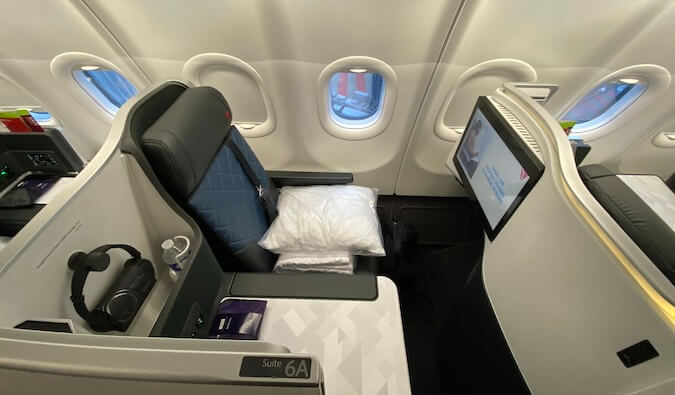Runway's Bold Move: Targeting Robotics for Future Profits

Amidst the rapidly evolving landscape of artificial intelligence and automation, Runway is stepping up its game by assembling a specialized team dedicated to robotics. This strategic move aims to enhance its existing AI models, catering specifically to the burgeoning demands of robotics and self-driving vehicle industries. As technology continues to reshape our world, Runway’s push into robotics reflects a broader trend where AI is becoming synonymous with innovation in automation.
Runway, a company that has garnered attention for its pioneering work in AI-driven creative tools, is now channeling its expertise into the robotics sector. The firm has long been recognized for its capabilities in generative AI, particularly in the realm of visual content creation. However, the company is now pivoting its focus to leverage its existing models for more complex applications in robotics and autonomous vehicles.
The decision to build out a robotics-focused team underscores the growing intersection of AI and robotics. With advancements in machine learning and computer vision, the potential for AI to enhance robotic capabilities is immense. For instance, AI can greatly improve a robot’s ability to interpret and navigate its environment, a critical component for self-driving cars and autonomous systems.
Runway's initiative comes at a time when the robotics industry is witnessing unprecedented growth. According to recent reports, the global robotics market is projected to reach $210 billion by 2025, driven by increased adoption in sectors such as manufacturing, logistics, and transportation. This surge presents a compelling opportunity for companies like Runway to carve out a significant niche.
By refining its existing models, Runway is not merely expanding its product suite; it is also aligning itself with key players in the robotics and autonomous vehicle sectors. This alignment could potentially lead to partnerships and collaborations that enhance its market positioning. Companies engaged in self-driving technology are constantly seeking innovative solutions to improve their systems' reliability and efficiency. By providing robust AI models tailored for these applications, Runway could become an invaluable ally in the race towards fully autonomous vehicles.
One of the core challenges in robotics and self-driving technology is the ability to process and analyze vast amounts of data in real-time. Runway’s existing AI models are well-equipped to handle complex datasets, enabling robots to make informed decisions on the fly. For example, self-driving cars must constantly interpret data from cameras, lidar, and radar to navigate safely. Runway’s advancements in AI could significantly enhance this data processing capability, leading to safer and more efficient autonomous systems.
Furthermore, the integration of AI into robotics is not limited to just navigation and decision-making. The emotional intelligence of robots—a concept that may sound futuristic—can also be enhanced through AI. As robots increasingly interact with humans, their ability to understand social cues and respond appropriately becomes critical. Runway’s expertise in generative AI could be instrumental in developing robots that not only perform tasks but also engage with people in a more human-like manner.
Another facet of Runway's strategy lies in its commitment to open-source development. By embracing an open-source approach, the company invites collaboration from a global community of developers and researchers. This transparency can accelerate innovation and lead to rapid advancements in robotics. Open-source platforms allow for shared learning and collective problem-solving, which can be particularly beneficial in a field as complex as robotics.
Moreover, Runway's focus on building a dedicated robotics team signifies a long-term vision. The company recognizes that the future of technology will be shaped by the seamless integration of AI into various aspects of daily life. From smart homes to autonomous delivery systems, the potential applications of robotics are vast and varied. By investing in a specialized team, Runway is positioning itself to be a leader in this transformative era.
Industry experts predict that as robotics technology matures, we will see a shift towards more collaborative robots (cobots) that work alongside humans, enhancing productivity across multiple sectors. Runway's AI models could play a pivotal role in this evolution, enabling cobots to adapt to their environments and learn from their human counterparts. This adaptability will be crucial in settings like warehouses, factories, and even service industries, where flexibility and responsiveness are key.
In addition to industrial applications, the implications of Runway's advancements in robotics could extend to everyday consumer experiences. Imagine a future where household robots not only perform chores but also understand your preferences and adapt their behavior accordingly. Runway's generative AI capabilities could lead to the development of more intuitive and personalized robotic assistants, making them an integral part of home life.
As Runway embarks on this ambitious journey into robotics, the company will likely face challenges typical of any tech-driven endeavor. Competition is fierce, with numerous startups and established firms vying for a piece of the robotics pie. However, with its robust foundation in AI and a clear vision of the future, Runway is well-equipped to navigate the complexities of this dynamic landscape.
In conclusion, Runway's strategic pivot towards robotics is not merely an expansion of its existing capabilities; it is a forward-thinking move that aligns with the future of technology. By fine-tuning its AI models for robotics and self-driving cars, the company is positioning itself at the forefront of an industry on the brink of transformation. As we stand on the cusp of a new era in robotics, Runway's developments will be closely watched by industry insiders and consumers alike, marking the next chapter in the integration of AI into our daily lives.
What's Your Reaction?
 Like
0
Like
0
 Dislike
0
Dislike
0
 Love
0
Love
0
 Funny
0
Funny
0
 Angry
0
Angry
0
 Sad
0
Sad
0
 Wow
0
Wow
0
































.jpg)








